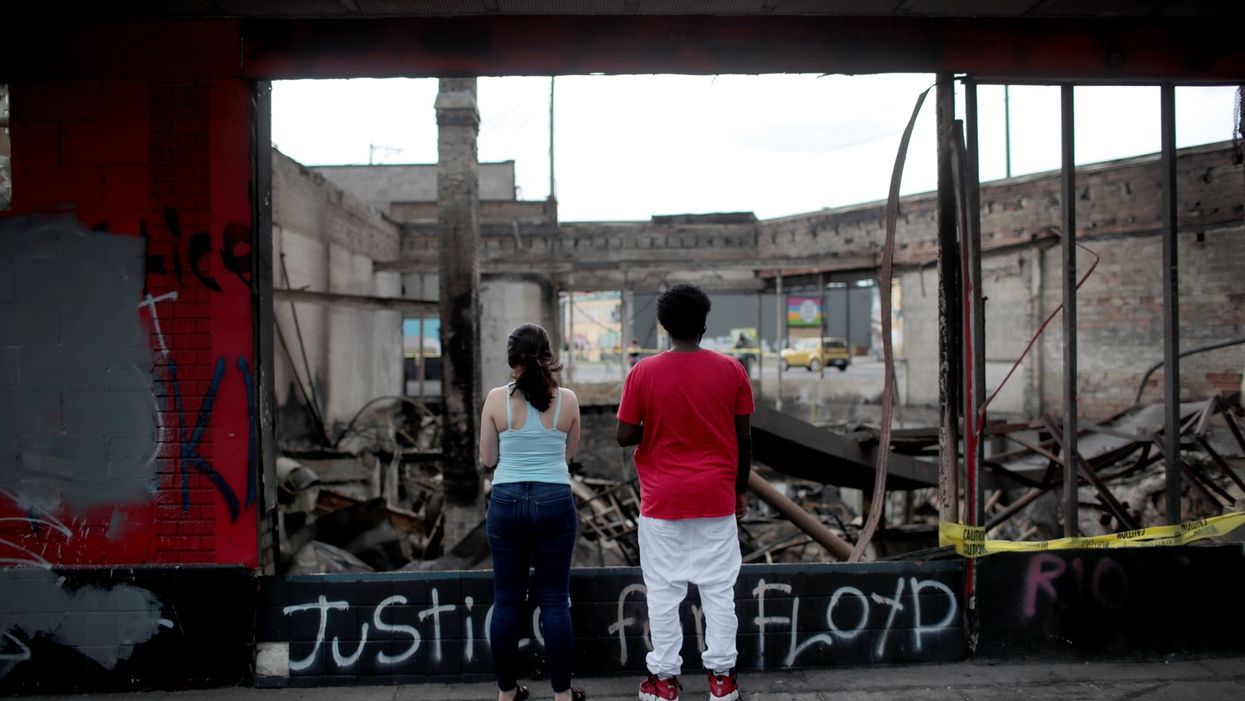
Scott Olson/Getty Images

The paper was accused of reflecting 'systemic racism in their newsroom and coverage'
The Philadelphia Inquirer has apologized and promised to "do better" after publishing an op-ed on Tuesday with the title, "Buildings Matter, Too."
The headline of the piece was changed amid uproar from critics, who have accused the newspaper of reflecting "systemic racism" for posting such a statement amid nationwide protests featuring "Black Lives Matter" in the wake of the death of George Floyd.
The day after the "Buildings Matter, Too" column was posted, the Inquirer issued a statement saying, "A headline published in Tuesday's Inquirer was offensive, inappropriate and we should not have printed it. We deeply regret that we did. We also know that an apology on its own is not sufficient."
It continued, "We need to do better. We've heard that loud and clear, including from our own staff. We will. A detailed explanation of how we got this so wrong will follow later today."
The Philadelphia Association of Black Journalists strongly condemned the Inquirer's original headline for the op-ed along with the subtitle that read, "Yes, they can be rebuilt, while lives are lost forever. But that doesn't mean that they will be."
The PABJ called the original headline "tone-deaf" in a statement and called for "more than just a formal apology from the Philadelphia Inquirer, but immediate changes to their editorial process and vetting."
PABJ board member Tauhid Chappell noted on Twitter that the group has "proposed working together [with The Inquirer] on a collaborative plan that addresses the systemic racism that is reflected in their newsroom & coverage."
The headline of the op-ed now reads, "Damaging buildings disproportionately hurts the people protestors are trying to uplift." Columnist Inga Saffron argues in the piece:
'People over property' is great as a rhetorical slogan. But as a practical matter, the destruction of downtown buildings in Philadelphia — and in Minneapolis, Los Angeles, and a dozen other American cities — is devastating for the future of cities. We know from the civil rights uprising of the 1960s that the damage will ultimately end up hurting the very people the protests are meant to uplift.
She concludes:
You can be appalled and heartbroken by our country's deadly racism, and yet still quake at what the damage to downtown portends for Philadelphia. Racism is built on strong foundations. The momentary satisfaction of destroying a few buildings does nothing to remove those structures. All it does is weaken our city.